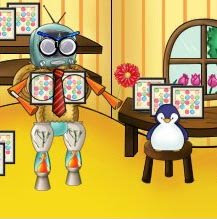“His ideas have such intuitive appeal that many of the words he used have infiltrated popular parlance, although no one thinks of them as science because he never did any experiments.”
-V.S. Ramachandran on Sigmund Freud, from Phantoms in the Brain.
In 1620 Francis Bacon published The New Organon, an epigrammatic treatise challenging scholasticism and promoting a more empirical approach to science.
In the Organon, Bacon identified four kinds of illusions (idola—usually translated as “idols”) that “block men’s minds.”
First there are the “idols of the tribe.” These are the illusions or distortions that are common to all men. In modern terms we would identify these with the physical limitations of our perception organs and the physical nature of the brain: we are all limited in the frequencies that we can see and hear and our brains produce artifacts and distortions that we all share.
Next are the “idols of the cave.” These are the illusions peculiar to an individual.
“For…each man has a kind of individual cave or cavern which fragments and distorts the light of nature.”
Third, there are the “idols of the marketplace.” These are distortions due to the shared use of false, equivocal, or fatuous language. Bacon recognized that language can function not only to elucidate but also to obfuscate reason and perceptions, and that furthermore, this power of obfuscation is proportional to the degree of general acceptance of misleading language.
“Plainly words do violence to the understanding, and confuse everything; and betray men into countless empty disputes and fictions.”
Finally, there are the “idols of the theatre.” These are shared illusions implanted by education.
“…for all the philosophies that men have learned or devised are, in our opinion, so many plays produced and performed which have created false and fictitious worlds.”
Bacon sensed that the versions of reality created by man-made philosophical systems--both the “facts” and the “logic” derived from these systems--are often more compelling, and have greater influence upon thoughts and perceptions, than true facts and proper logic. Furthermore, the influence of these philosophical systems is often invisible (in modern terms, subconscious) to those they afflict.
Bacon anticipated Karl Popper by noting that the “idols of the theatre” represent complete systems that can accommodate any external datum and bend any logic to fit their intrinsic curvature.
“There is no possibility of argument, since we do not agree either about the principles or the proofs.”
Bacon also recognized that the smart and well educated are more susceptible to the idols of the theatre, precisely because they are smart and well educated:
“It is absolutely clear that if you run the wrong way, the better and faster you are, the more you go astray.”
Thursday, March 5, 2009
Subscribe to:
Post Comments (Atom)

mmmm . . . bacon.
ReplyDeleteThe more I know about the problems that exist in the world the more complicated they become. Yet I know many educated people who view the problems of the world in a very simplistic way. People love "gross" generalizations. Their "understanding" makes them feel superior and yet they know nothing of solutions -- they know nothing of the basic human needs of other people. Education is always seen as a positive thing in our society -- yet there is such a thing as a bad education.